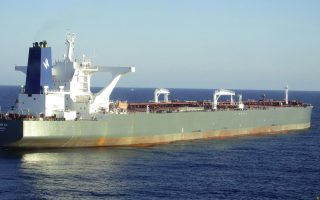Greek-owned fleet keeps growing and getting younger by the year

The Greek-owned merchant fleet has posted the biggest increase since 2009 in the last 12 months, as the number of vessels controlled by Greeks increased by 202 to reach 4,909 – i.e. a rise of 4.3 percent from a year earlier – according to data collected by Petrofin Research.
The last time the Greek fleet grew so rapidly was in 2009, when it expanded by 218 vessels within one year. The fleet is controlled by 648 companies based in Greece, against 668 companies a year earlier, the Petrofin data showed.
Crucially, the ships which have been added to the Greek fleet are younger and bigger.
Today total capacity of Greek-owned vessels adds up to 328.25 million deadweight tons(dwt), against 303.5 million dwt in 2014, or an increase of 7.52 percent. The average capacity per ship has also grown in the last 12 months, from 64,495 dwt in 2014 to 66,868 dwt this year, while the average age declined further this year to reach 12.7 years, against 13.2 years in 2014, 14 years in 2013 and almost 16 years in 2011. The biggest ships – i.e. those with a minimum capacity of 20,000 dwt each – have an average age of 8.71 years, against 9.14 years in 2014 and 9.83 years in 2013.
The growth of the Greek-owned fleet is even more significant given that it has been achieved in a particularly unfavorable environment, as freight rates (with the exception of tankers) remain low and bank financing is limited, confined only to the major companies in the sector.
On the other hand, ship prices are in decline, leading many shipowners to search for investment opportunities to expand their fleets before the chartering market rates return to growth.
Dry-bulk carriers are still the most popular category of ships for Greeks, as they comprise 47.43 percent of the Greek-owned fleet, up from 44.87 percent last year. Greek shippers added 163 dry-bulkers over the course of the last 12 months, against 52 a year earlier. Their average age comes to just 8.63 years, from 9.25 years in 2014 and 10.3 years in 2013.
Tankers comprise 35.7 percent of the fleet, numbering 817, compared to 816 a year earlier. In the last year their total capacity has expanded by 199,687 dwt. The biggest increase was predictably posted by liquefied natural gas (LNG) carriers, which have risen by 50 percent on a yearly basis and have an average age of just 3.1 years.





